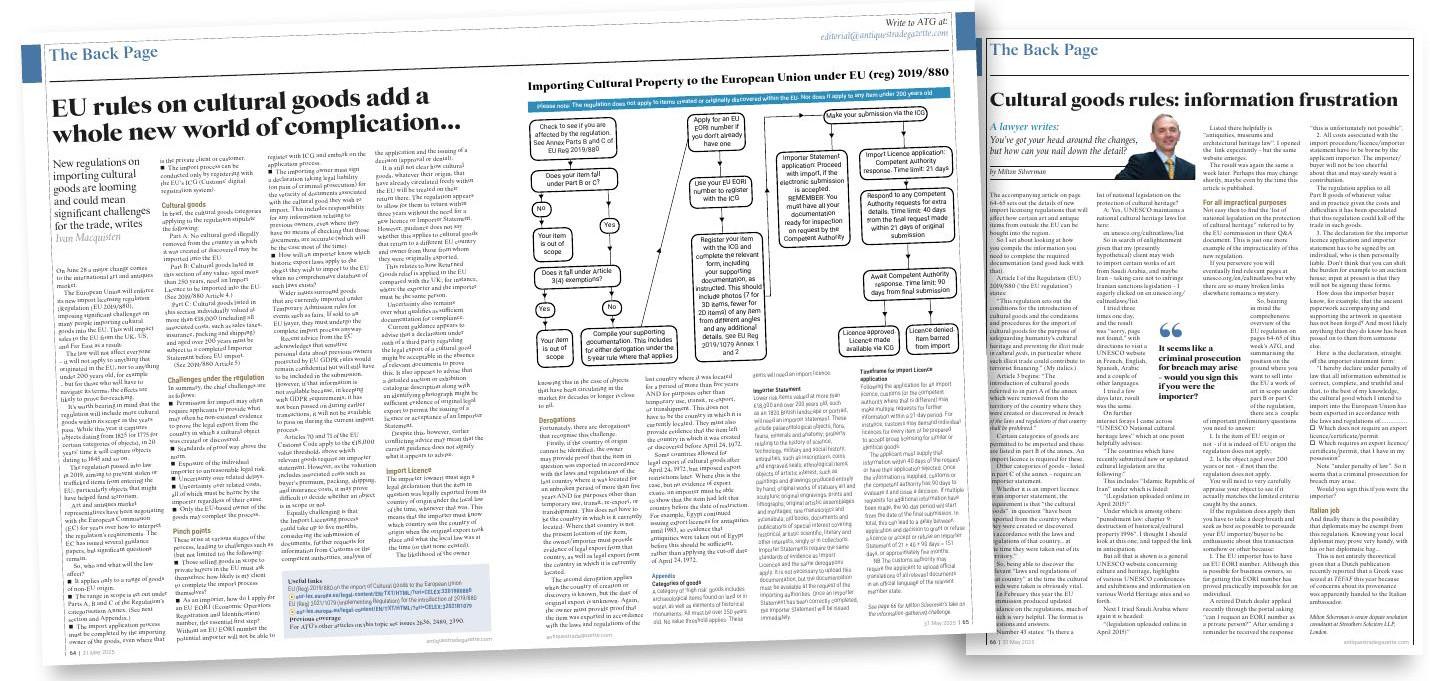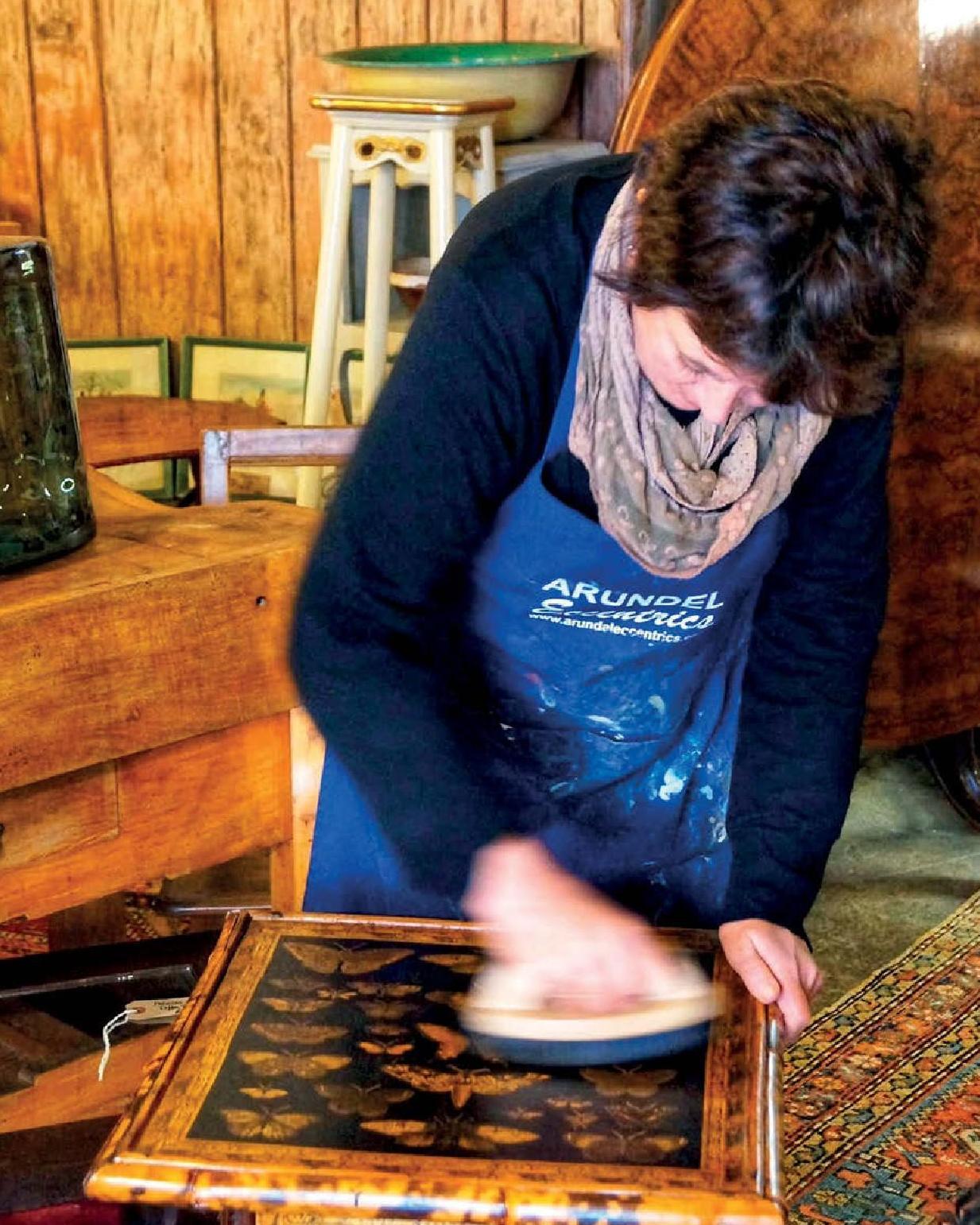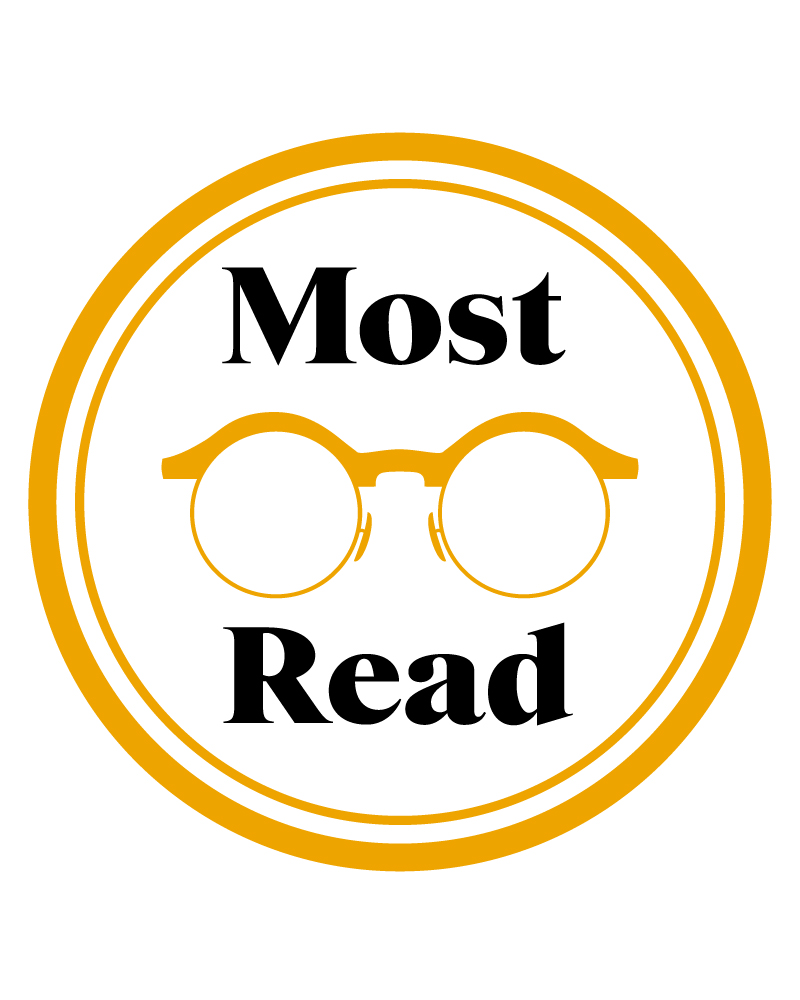
The Import Licensing Regulation covered in detail in ATG No 2695.
Recent auctions including goods to which Import Licensing Regulation (EU 2019/880) (‘the EU Regulation’) applies provide some early testing of the effect of this legislation.
First, a very brief reminder of the new rules (these were covered in much greater detail in ATG No 2695): since June 28, importing co-called ‘cultural goods’ (of non-EU origin) into the EU has become a lot more burdensome. The rules include three sections:
Part A: No cultural good illegally removed from the country in which it was created or discovered may be imported into the EU (and you have to prove that your item was not illegally removed).
Part B: Cultural goods listed in this section of any value, aged more than 250 years, need an Import Licence to be imported into the EU.
Part C: Cultural goods listed in this section individually valued at more than €18,000 (including all associated costs, such as sales taxes, insurance, packing and shipping) and aged over 200 years must be subject to a completed Importer Statement before EU import.
What is more, the buyer importing the item into the EU must apply for an EU EORI (Economic Operators Registration and Identification) number. Businesses can do this, but for individuals it is very difficult.
Bidders deterred
So, how does a collector based in the EU bid and buy at an auction in the UK and get their item imported into the EU?
With great difficulty, if at all.
Based on my conversations with auction house insiders, a typical example was a wealthy interested buyer who kept up with the EU Regulation and was heard to say: “I would love to go for X and Y and Z, but I can’t, because they are within the scope of the regulation and therefore too difficult to import into the EU, so I will have to hold off and desist from leaving a bid.”
Auctioneers have also said that during auction previews “we are having to put them off [ie potential purchasers] when they make pertinent enquiries about certain in-scope cultural objects”. By which they mean that their duties to their potential purchasers made this so. They felt it as a moral imperative.
Egyptian antiquities were up for sale at a recent auction. All respectable pieces, the auction house saw no problem with them.
When an elderly EU-based client wanted to bid on a particular Egyptian antiquity, the bidder was asked whether they were aware of the newly implemented EU Regulation. The client said he was indeed aware but on further discussion it turned out he had no knowledge of this regulation. The auction house provided more detail, to which his response was “… maybe I shouldn’t …” and “let’s wait and see how this all pans out, I don’t want to be a guinea pig on this …”.
European base
Despite the above, the summer sales in some of the auctions most affected by the EU Import Regulations went surprisingly well, considering they had to contend not only with the newly implemented EU Regulation, but also the US tariffs.
One auction house explained: when considering how to advise potential buyers they were also mindful of vendors, not wanting a buyer to default on payment because they had not realised they would find it almost impossible to import something into the EU.
They elaborated: all importers entering the EU with in-scope goods need an EU EORI number, but it is very difficult indeed for individual clients to obtain an EU EORI number. To solve this, some dealers are thinking of setting up in the EU with EU business entities so that they can then apply for an EU EORI number and import on behalf of their personal clients who have such difficulties with this.
In practice, individual EU-based buyers with such impediments are likely simply to not bother going ahead with the purchase.
The auction house pointed out another problem they had experienced at the point of import post-auction, when goods sold at auction were of EU origin and therefore out of scope of the EU Regulation, but they happened to have the same code as non-EU goods.
Certain EU Customs authorities requested a declaration to confirm the goods were of non-EU origin, and the purchasing client was being asked to provide evidence that the works were out of scope; in other words that they were of EU origin.
In practice this was incredibly difficult and immensely time consuming, requiring academic expertise. It fell on the auction house/seller to confirm these particular cultural goods were out of scope of the EU Regulation and to advise the client to be firm with Customs, making clear that the works were indeed of EU origin. After some push-back, Customs appeared to accept the position in that instance.
In summary: potential clients have been put off buying works falling ‘inscope,’ and even when works are not in-scope, some Customs authorities are still asking questions as if they were.
Enterprising dealers
Some enterprising dealers are taking advice on setting up EU entities so they can apply for an EU EORI number rather than their EU-based clients who are unlikely to do so.
Whether the costs, and possible criminal liability if a declaration is made which proves to be untrue (see further details in ATG No 2695) makes this a reality, remains to be seen.
Dealers have noted a further reduction in EU-based business, that had already fallen post-Brexit but has reduced still further. Uncertainty is the main obstacle, particularly concerning what documentation will be deemed acceptable to fulfil the import criteria.
The trade and its observers will be interested to see how the situation develops a little further down the line, for example next year at the BRAFA fair in January, and TEFAF Maastricht fair in March 2026. What seems to be clear is that in the long run the EU will have fewer imports of non-EU origin cultural objects.
Whether this is seen as a good outcome in political circles remains to be seen.
The impact on EU-based trade and private collectors is already clear: full participation in the global art market enjoyed for generations will fast become history itself unless some of these obstacles are modified or removed.
Milton Silverman is senior commercial dispute resolution partner at Streathers Solicitors LLP, London
Read more from Milton Silverman:
Disputed bids: auctioneers’ discretion has been tested in court
The inclusion of strict conditions can rebound on those who impose them












